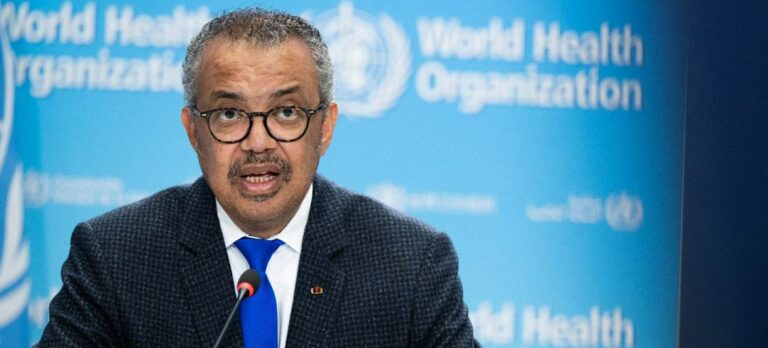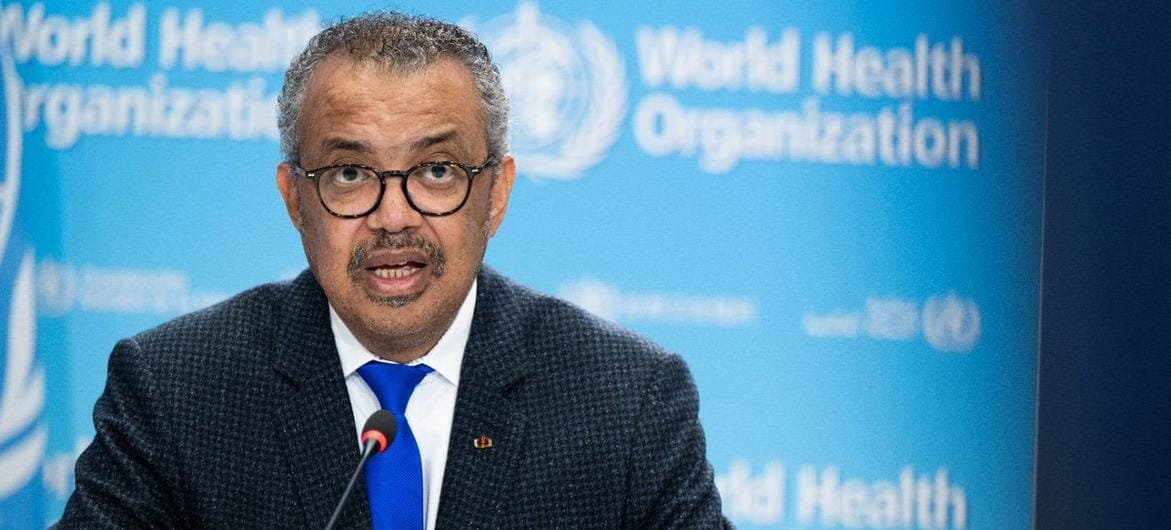[ad_1]

WHO Director-General Tedros Adhanom Ghebreyesus briefs the press on the state of COVID-19.
The head of the World Health Organization (WHO) on Friday declared the end of COVID-19 as a public health emergency of international concern, stressing that this does not mean the disease is no longer a global threat. .
“Last week, COVID-19 claimed the life of one person every three minutes – and these are only the deaths we know of,” said Dr Tedros Adhanom Ghebreyesus, Director-General of WHO. speaking to the media at the agency’s headquarters in Geneva.
According to the WHO’s coronavirus dashboard which compiles key statistics since the start of the pandemic, cumulative cases worldwide now stand at 765,222,932, with nearly seven million deaths (the precise figure s currently stands at 6,921,614).
As of April 30, a total of more than 13.3 billion doses of vaccine have been administered worldwide.
Downward trend
Dr Tedros said the virus – first classified as a public health emergency of international concern by the WHO on January 30, 2020 – was here to stay. “He’s still killing and he’s still changing. The risk remains that new variants emerge that cause further surges in cases and deaths,” he said.
He said the decision was not taken lightly. Over the past year, the WHO-led emergency committee has carefully scrutinized the data, on the right time to sound the alarm.
For more than 12 months, the pandemic “has been on a downward trend”, he pointed out, with immunity increasing thanks to highly effective vaccines developed in record time to fight disease and infection. Death rates have fallen and pressure on once overwhelmed health systems has eased.
“This trend has allowed most countries to return to life as we knew it before COVID-19,” added Dr. Tedros.
False and misleading information
But he said the impact of the pandemic had “exposed political fault lines, within and between nations”. “It has eroded trust between people, governments and institutions, fueled by a torrent of misinformation and disinformation,” he said.
Dr Tedros also noted the enormous damage inflicted on all aspects of global life by the virus, including enormous economic upheaval, “wiping billions of dollars from GDP, disrupting travel and trade, closing businesses and plunging millions of people in poverty”.
He recalled that as he spoke, thousands of people around the world continue to fight for their lives in intensive care, and millions more will live for the foreseeable future, “with the debilitating effects” of the effects of the post-COVID (also called “long COVID”).
The WHO chief said the end of the health emergency was a moment to celebrate, and he paid tribute to the “incredible competence and selfless dedication of health care workers” around the world.
But on another level, it’s a moment of reflection, as COVID-19 continues to leave “deep scars on our world”.
“These scars should serve as a permanent reminder of the possible emergence of new viruses, with devastating consequences,” he said.
Learn from one’s mistakes
Many mistakes were made, including a lack of coordination, fairness and solidarity, which meant that existing tools and technologies were not used to the best of their ability to fight the virus.
“We have to promise ourselves and our children and grandchildren that we will never make these mistakes again,” he said. “This experience should change us all for the better. This should make us more determined to achieve the vision that nations had when they founded the WHO in 1948: the highest attainable standard of health, for all”. (END)
Related
[ad_2]
Source link



